Introduction: What is Pulse diagnosis (Nadi Pariksha) :
Pulse diagnosis is an integral part of the traditional Ayurvedic system of medicine. Known as Nadi Pariksha in Sanskrit, it involves analyzing the pulse to assess a person's health status. This method has been practiced for thousands of years by the Ayurveda scholars and practitioners in India and is highly regarded in Ayurveda treatment.
According to Ayurveda study, the body is composed of three main doshas - Vata, Pitta, and Kapha. These three doshas are responsible for governing different bodily functions and maintaining overall balance of body, mind and soul. Any disruption in their equilibrium leads to illness. Pulse diagnosis helps determine the specific dosha imbalances in an individual, allowing for personalized ayurvedic treatment approaches.
The pulse is regarded as a reflection of an individual's inner state and reflects the overall status of the body and mind. By reading the pulse, an experienced Ayurvedic physician in Ipswich can assess the functioning of the organs, tissues, and systems of the body, and identify any dosha imbalances or disturbances. This helps in diagnosing diseases and formulating targeted ayurvedic treatment plans for the individual.
Pulse diagnosis (Nadi Pariksha) Process:

During a pulse diagnosis session, the ayurvedic practitioner carefully feels the radial pulse at the wrist of the patient. The pulse is assessed based on a variety of factors, including rhythm, strength, speed, depth, volume, and regularity. Each of these parameters corresponds to specific doshas and their qualities.
For example, a strong and forceful pulse indicates an excess of Pitta dosha, which is associated with heat and intensity. A weak and slow pulse, on the other hand, indicates an excess of Kapha dosha, which is linked to heaviness and sluggishness. A fast and erratic pulse may indicate an imbalance in the Vata dosha, which governs movement and mobility in human body.
Based on the assessment of the pulse, the Ayurvedic practitioner can determine the dosha imbalance and its implications on the patient's health. They can then develop a personalized ayurvedic treatment plan that includes dietary recommendations, lifestyle modifications, herbal remedies, and panchkarma therapies specifically targeted at addressing the imbalances.
Why pulse diagnosis unique tool in Ayurveda
What makes pulse diagnosis unique in Ayurveda is its ability to detect imbalances even before physical symptoms manifest. By analyzing the pulse, ayurvedic practitioners can identify subtle imbalances and take preventive measures to restore balance and maintain overall well-being.
Pulse diagnosis is not limited to disease diagnosis and treatment planning. It also provides valuable insights into a person's emotional, mental, and spiritual well-being. The pulse can indicate emotional disturbances, stress levels, mental clarity, and energy levels, among other things. This holistic approach allows for a comprehensive understanding of an individual's health, beyond just physical symptoms.
Furthermore, pulse diagnosis can also be used to monitor the progress of treatment and evaluate the effectiveness of interventions. By regularly assessing the pulse, ayurvedic practitioners can track changes in the dosha imbalances and adjust treatment plans accordingly.
Who Can Do Pulse Diagnosis:
While any Ayurvedic Practitioner or Naturopath can do the basic techniques of pulse diagnosis, it is important to note that the accuracy and effectiveness of the diagnosis may vary depending on the experience and expertise of the practitioner. Inexperienced practitioners may not be able to accurately interpret the subtle nuances of the pulse or may misinterpret the information they receive. Therefore, it is recommended to seek out experienced ayurvedic practitioners for pulse diagnosis in Australia.
Important to choose only qualified and experienced Ayurveda Practitioner for Pulse Diagnosis:
Pulse diagnosis, a key aspect of Ayurveda, should only be performed by qualified experts in the field. This diagnostic technique requires extensive knowledge and experience to effectively interpret the pulse's subtle characteristics. By observing the pulse's rhythm, speed, and strength, experts can identify imbalances in the body's doshas or energy forces. They possess a deep understanding of the doshas and their relation to different physical and mental ailments.

Furthermore, skilled Ayurvedic practitioners can carefully examine the pulse using a trained touch and detect intricate patterns. Relying on a qualified Ayurveda expert in australia ensures accurate assessment and the development of a personalized treatment plan based on an individual's unique constitution and specific health needs. Choosing a trained professional guarantees the highest level of care and optimal results in Ayurvedic pulse diagnosis in Australia.
Pulse Diagnosis by Deep Ayurveda Practitioner in Australia
Deep Ayurveda in Ipswich, Queensland (Australia) is known for its expertise in pulse diagnosis. With a team of highly skilled and experienced Ayurvedic practitioners in Australia under the guidance of our founder & cheif ayurvedic practitioner- Dr Baldeep Kour, Deep Ayurveda's practitioners uses pulse diagnosis as a primary method of determining the health condition of an individual. This ancient technique allows them to identify any imbalances in the body's doshas (vata, pitta, and kapha) and provide personalized treatment plans. With a thorough understanding of the pulse, the practitioners at Deep Ayurveda are able to address the root cause of various health concerns and provide effective solutions for their clients. Whether it is for managing chronic conditions, improving overall well-being, or preventing diseases, Deep Ayurveda in Ipswich, Queensland offers a holistic approach that combines pulse diagnosis with traditional Ayurvedic therapies to bring about optimal health and balance in Australia.
Conclusion:
In conclusion, pulse diagnosis is a vital component of the traditional Indian Ayurvedic system of medicine and has been practiced for thousands of years. It provides valuable information about a person's health status, helps in diagnosing diseases, and facilitates personalized treatment plans. With its focus on balancing the doshas and promoting overall well-being, pulse diagnosis offers a holistic approach to healthcare.
Disclaimer: The information in this article is intended for informational purposes only. It is not intended to replace professional medical advice, diagnosis, or treatment. Always seek the advice of your physician or other qualified healthcare providers in Australia with any questions you may have regarding a medical condition.







